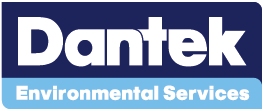Legionella Risk Assessment and Written Scheme Of Control: As an educational institution, the safety and well-being of your students and staff are paramount. We understand the importance of ensuring a safe environment for learning and growth, and one significant aspect of this safety is guarding against Legionella susceptibility.
Understanding Legionellosis
Legionellosis is a potentially life-threatening illness caused by Legionella bacteria. Though precise figures for 2021 and 2022 are unavailable, the impact of COVID-19 distorted 2020 statistics, with 295 reported cases in the first ten months. The threat of Legionnaires’ disease is real and necessitates concrete action.
Assessing Susceptibility
An integral part of a Legionella Risk Assessment is evaluating the susceptibility of your institution’s population, which should be periodically reviewed. Factors influencing susceptibility include gender, age, smoking habits, alcohol consumption, physical activity, and underlying medical conditions such as cancer or organ transplants.
While we have little control over preventing Legionella from entering our water systems, contamination from minute traces in mains water and airborne droplets is virtually inevitable. From a risk analysis perspective, it’s essential to anticipate encountering Legionella at some point in your systems’ life cycle.
Key Risk Factors
- Water temperature between 20–45 °C
- Stored, stagnant, or re-circulated water
- Presence of nutrients like sludge, scale, organic materials, and rust
- Water fittings made of specific materials
- Potential for aerosol generation
- Number and susceptibility of your institution’s population
- Management’s ability to control risk
Steps Involved in a Legionella Risk Assessment: Identification of Potential Hazards:
Legionella Risk assessments involve identifying potential sources of Legionella, such as water storage tanks, showers, Calorifiers, infrequently used outlets and cooling towers plus much more. This step helps create an inventory of potential hazards within your educational setting.
Evaluating Risk Factors:
Once potential hazards are identified, assessing the risk factors associated with each source of Legionella helps prioritize control measures. Factors like water temperature, how often the water is used, stagnation, and the presence of biofilms are considered during this evaluation.
Developing Control Measures:
Based on the risk assessment findings, tailored control measures can be developed. These may include regular monitoring and maintenance of water systems, implementing water treatment strategies, and ensuring appropriate cleaning and disinfection practices.
Monitoring and Reviewing:
Legionella Risk Assessments should be an ongoing process. Regular monitoring and review of control measures help ensure their effectiveness over time and enable timely adjustments if needed.
Once your educational setting has commenced the Legionella Risk Assessment process, it will be categorized on a scale, ranging from Low Risk to High Risk.
Risk Score
- Low Risk
- Low / Medium
- Medium Risk
- Medium / High
- High Risk
The actual level of risk your setting faces from Legionella is denoted by its current risk score. It’s crucial to pay attention to the “action to be taken” to mitigate specific risks and evaluate the realistic score following remedial actions.
While completely eliminating Legionella from your educational setting may be an unattainable goal, you can effectively manage and control the risk, ensuring the safety of your staff and students.
All risk assessments are regarded as “working documents,” and as per current guidelines, a risk assessment must be carried out whenever the Approved Code of Practice L8 and guidance applies.
Understanding the Reassessment Process
What does this mean in practice? The front page of the Legionella Risk Assessment contains a resurvey date, initially determined by the risk assessor based on site-specific findings, resulting in a simple risk score categorized as high, medium, or low. Your resurvey date can range from 6 months to 5 years.
But it doesn’t stop there. Even if your Legionella Risk Assessment specifies a resurvey date 24 months from now, this may not be the final word. Simple amendments to the working document or significant changes within your setting can necessitate a new assessment.
For instance, if your school decides to convert the English block into an additional shower block for the expanding sports hall, a new assessment becomes essential. This is classified as “A change to any of the assessed water systems or its use.”
One of the primary challenges educational establishments face is understanding when and how to update their Legionella risk assessments. All risk assessments are considered “working documents” and must align with the Approved Code of Practice L8 and associated guidance. What this essentially means is that your Legionella Risk Assessment should be continually evolving to reflect the current state of your water systems.
- Resurvey Dates Matter: The resurvey date on your Legionella Risk Assessment is initially determined by the risk assessor, based on site-specific findings. This date can range from 6 months to 5 years, depending on the assessed risk.
- Changes Trigger Updates: Any significant changes to water systems, their use, or key personnel require a new assessment. For example, if your school decides to convert a math block into an additional shower block, this change necessitates a new assessment.
- Monitoring and Reviews: Regular monitoring is crucial. If your control regime indicates problems like inadequate water temperature or changes in key personnel, a review becomes necessary.
- Constant Vigilance: Always remember that a Legionella Risk Assessment is a live document, requiring regular attention and updates.
- After 3 months, if calorifier 1 in the DT block fails to reach the required 60°C, and outlet temperatures fall within the primary growth range, a review is required.
- Even a minor staff change, such as a shift in the statutory duty holder or site responsibilities, mandates a review.
Always keep in mind that the Legionella Risk Assessment is a dynamic “working document” and must consistently reflect your school, college or universities current status.
Top Tips
-
Keep hot water hot.
-
Keep cold water cold.
-
Keep the water moving.
-
Keep it clean.
Consider special measures during academic breaks, such as half-term and summer holidays, to prevent water stagnation that promotes Legionella growth. Develop plans for regular flushing of outlets that go unused during these periods.
Additional Resources: For further information, consult these valuable resources:
- Approved Code of Practice https://www.hse.gov.uk/pubns/books/l8.htm
- HSE Website – Legal Updates & Outbreaks https://www.hse.gov.uk/legionnaires/
- HSG274 Technical Guidance https://www.hse.gov.uk/pubns/books/hsg274.htm
- Dantek – Advice, Services, and Training https://dantekenvironmental.co.uk/
What Our Legionella Risk Assessment Includes
- Full Asset Register: We meticulously document all relevant assets, including taps, sentinel points, TMV valves, Expansion vessels, Calorifiers, and more. This asset register can be easily exported to an excel file and integrated into our electronic logbook system.
- System Schematics: Our AutoCAD drawings provide detailed system schematics, highlighting key plant items, valves, loops, and outlet locations. Sentinel outlets are marked for easy identification.
- Visual Documentation: We include full-colour photographs of assets to enhance understanding.
- Condition Survey: Our assessment evaluates the current condition of systems, ensuring they adhere to hygienic standards set by the Water Fittings Regulations 1999.
- Recommendations and Remedial Works: We provide comprehensive recommendations for remedial and monitoring tasks, complete with a risk score comparison before and after implementing these recommendations.
- Schedule of Remedial Works: A detailed schedule, including pictures, simplifies the delegation of tasks to teams or external contractors.
- Audit of Existing Records: We assess your existing records systems to ensure compliance with ACoP L8.
- Guaranteed Compliance: Rest assured, all Dantek Legionella Risk Assessments are fully compliant with both the ACoP L8 and BS8580.
Written Scheme of Control
When it comes to ensuring the safety of water systems within educational establishments, the Legionella Risk Assessment is just the beginning. One critical component that often arises during assessments is the need for a Written Scheme of Control. This document plays a pivotal role in preventing the growth and proliferation of Legionella bacteria, and Dantek is here to guide you through its creation.
Why a Written Scheme of Control?
A Written Scheme of Control is your roadmap to maintaining water systems that are free from Legionella contamination. During a Legionella Risk Assessment, our assessors may identify that such a scheme is absent. In such cases, it becomes the responsibility of the statutory duty holder and the responsible person to act swiftly.
Tailored to Your System
A well-crafted Written Scheme of Control should be tailored to the specific water systems covered by the Legionella Risk Assessment. It provides a clear framework for managing Legionella risks and outlines the roles and responsibilities of key management personnel and any chosen water hygiene contractors.
What Does It Include?
- Here’s what you can expect from a robust Written Scheme of Control:
- Roles and Responsibilities: Clearly defined roles for key personnel, ensuring everyone knows their part in Legionella risk management.
- Shutdown and Commissioning Procedures: Detailed instructions for safe shutdown and commissioning of water systems.
- Response to Faults and Emergencies: A plan outlining how your organization intends to respond in the event of faults or emergencies related to water systems.
Dantek’s Solution
We understand that creating a Written Scheme of Control can be a daunting task, especially if it’s your first time. That’s why we offer an optional extra to simplify the process. Our initial custom Written Scheme of Control template is a live document that provides easy-to-follow steps for managing Legionella risks on a site-specific basis.
Your Input Matters
While our template serves as a valuable starting point, it’s essential to emphasize that it may not be considered suitable or sufficient by enforcing authorities without your organization’s input and ownership. The document should reflect how your organization operates and manage the control scheme for Legionella risk.
Your Responsibility
Ultimately, the responsibility lies with the statutory duty holder and the responsible person to review the information in the document. You have the power to add or revise text to ensure it aligns accurately with your practices.
For a detailed overview of the requirements of a Written Scheme of Control, please refer to Appendix 2.2, page 55, of the HSG274 Part 2.
Dantek is committed to ensuring the safety of your educational establishment by not only conducting thorough Legionella Risk Assessments but also guiding you through the creation of a robust Written Scheme of Control.
With this comprehensive knowledge and the collaboration of Legionella experts, you can ensure your educational institution remains a safe place for learning and growth.
Our Expert Team is Here to Support You
Contact Us Now!
📞 Phone: 01454 417 920
📧 Email: sales@dantek.co.uk

 Managing Legionella Safety in the Sports Industry requires a systematic and tailored approach. With our custom-written scheme of control template, you can streamline your Legionella risk management efforts, ensuring compliance and effective risk mitigation. Remember, it is crucial for the statutory duty holder and responsible person to review and personalize the document to align with your organization’s practices. Take advantage of this valuable resource and proactively protect the health and well-being of all individuals within your facility and ensure the highest standards of legionella safety in the sports industry.
Managing Legionella Safety in the Sports Industry requires a systematic and tailored approach. With our custom-written scheme of control template, you can streamline your Legionella risk management efforts, ensuring compliance and effective risk mitigation. Remember, it is crucial for the statutory duty holder and responsible person to review and personalize the document to align with your organization’s practices. Take advantage of this valuable resource and proactively protect the health and well-being of all individuals within your facility and ensure the highest standards of legionella safety in the sports industry. ssigning compliance-related tasks to field service engineers becomes a breeze. The system streamlines task management, making it easy to allocate responsibilities and track the progress of each task. This level of organization ensures that all necessary compliance activities are completed on time and with utmost precision, minimizing the risk of any potential issues.
ssigning compliance-related tasks to field service engineers becomes a breeze. The system streamlines task management, making it easy to allocate responsibilities and track the progress of each task. This level of organization ensures that all necessary compliance activities are completed on time and with utmost precision, minimizing the risk of any potential issues.